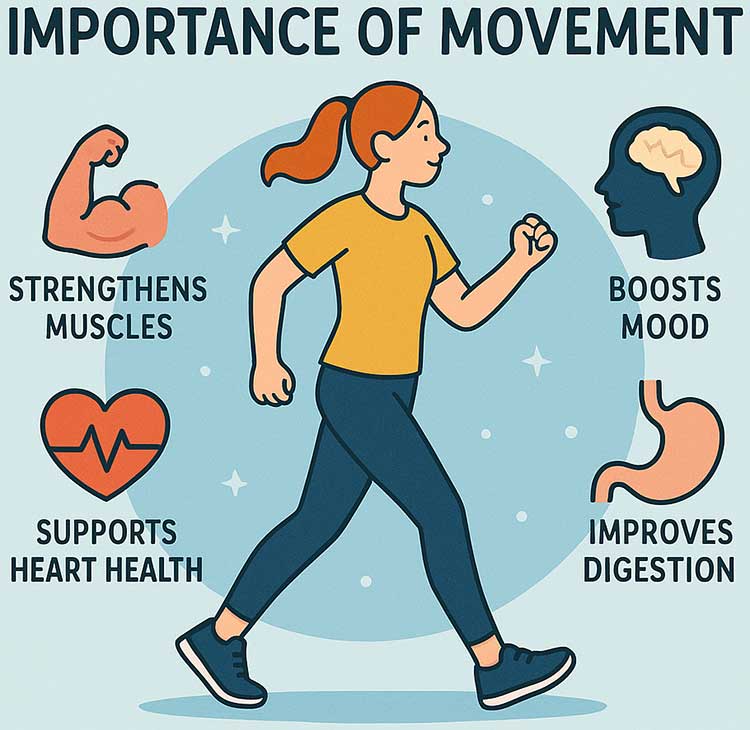Unveiling Hypnotherapy: Myths vs. Science
Dr. Tatyana's Health and Wellness Blog
Treating the whole person to restore optimal health. Check back often for up-to-date news and information about acupunture and Chinese medicine.
Most Recent Posts ...
Posted on: 2/16/2026
Posted on: 2/2/2026
Posted on: 1/19/2026
Posted on: 1/5/2026
Search All Blog Posts
Blog Post Archive Categories
- Herbs for Better Digestion: Natural Support for a Healthier Gut
- Why Moving Your Body Matters: The Hidden Risks of a Sedentary Lifestyle
- Top 5 Ways to Stay Healthy This Winter and Avoid the Flu
- Acupuncture & Herbal Medicine for Digestive Health: Healing the Center of Your Body
- Acupuncture for Pain Relief: A Natural, Effective Solution
- Acupuncture for Insomnia & Anxiety: Restoring the Calm Within
- Chronic Fatigue and Chronic Inflammation: A Holistic Look Through Western and Eastern
- The Hidden Dangers of Overusing Supplements: Are You Taking More Than You Should?
- The Importance of Exercise and How to Stay Motivated for a Healthier You
Unveiling Hypnotherapy: Myths vs. Science

When you hear the word hypnotherapy, what comes to mind? For many, images of swinging pendulums, mysterious mind control, or exaggerated Hollywood scenes might flood their thoughts. Hypnotherapy has long been misunderstood, shrouded in myths and misconceptions. However, science paints a very different picture. This blog will explore the common myths surrounding hypnotherapy and reveal the scientific truths behind this powerful therapeutic tool.
Common Myths About Hypnotherapy
Myth 1: Hypnotherapy is mind control. One of the biggest myths about hypnotherapy is the belief that the therapist can control your mind or force you to do things against your will. This misconception is largely fueled by movies and stage hypnotists who make it seem like people are powerless once they are “under.”
The Reality: In hypnotherapy, you are in full control of your mind at all times. It’s impossible for a hypnotherapist to make you do anything you don’t want to do. Hypnosis is actually a deeply relaxed, focused state where you remain aware and conscious. The therapist guides you, but you are the one steering the process.
Myth 2: You can get stuck in hypnosis. Some people fear that if they are hypnotized, they won’t be able to “snap out of it” and could remain stuck in that state forever.
The Reality: There is no evidence that anyone has ever been “stuck” in hypnosis. Hypnosis is a natural state of mind that people experience daily, such as when you’re daydreaming or completely absorbed in a book or movie. If a hypnotherapy session were to end without guidance, you would either wake up naturally or drift into a natural sleep.
Myth 3: Hypnosis only works on certain types of people. Many believe that only gullible, weak-minded, or overly emotional people can be hypnotized.
The Reality: Hypnosis is a naturally occurring state that almost everyone can experience. It has nothing to do with gullibility or weak-mindedness. In fact, the ability to be hypnotized is often linked to the capacity for focus and imagination. If you’ve ever lost yourself in a daydream, you can likely benefit from hypnotherapy.
The Science Behind Hypnotherapy
Now that we’ve debunked some common myths, let’s explore what science says about hypnotherapy.
How Hypnotherapy Works: At its core, hypnotherapy works by guiding individuals into a relaxed, focused state known as a trance. In this state, the conscious mind becomes quieter, allowing access to the subconscious. This is where deeply ingrained habits, memories, and beliefs reside. By accessing the subconscious, a hypnotherapist can help individuals make meaningful changes, whether it's breaking bad habits, managing pain, or overcoming fears.
Scientific studies show that hypnosis can alter brain activity. Brain imaging studies using fMRI (functional magnetic resonance imaging) have revealed changes in areas of the brain responsible for attention, perception, and self-awareness during hypnosis. This provides evidence that hypnosis is not just a “placebo effect” but a measurable shift in brain function.
Hypnotherapy and Pain Management: One of the most researched areas of hypnotherapy is its effectiveness in managing pain. A 2020 study published in the journal Pain found that hypnotherapy significantly reduced pain perception in patients with chronic pain conditions, such as fibromyalgia and arthritis. These results suggest that hypnosis can change the way the brain processes pain signals, providing relief without the need for medication.
Hypnotherapy for Anxiety and Stress: Hypnotherapy has also shown promise in treating anxiety and stress-related disorders. A meta-analysis in the American Journal of Clinical Hypnosis concluded that hypnotherapy is an effective tool for reducing anxiety, helping individuals reframe negative thought patterns and cultivate a calmer state of mind. Unlike traditional talk therapy, hypnotherapy targets the subconscious, making it a faster, more direct method for change.
Separating Myth from Science
Hypnotherapy is not about swinging pendulums or losing control of your mind. It’s a scientifically backed therapeutic technique that taps into the subconscious to help individuals overcome a range of challenges, from chronic pain to anxiety and bad habits. By debunking the myths surrounding hypnotherapy, we hope to shed light on the real, evidence-based benefits this therapy can offer.
If you’ve ever been curious about hypnotherapy but were held back by misinformation, now is the time to explore it with an open mind. The science supports its effectiveness, and the potential benefits are vast.
Are you ready to tap into the power of your subconscious mind? Contact a certified hypnotherapist today to see how this transformative therapy can help you.




